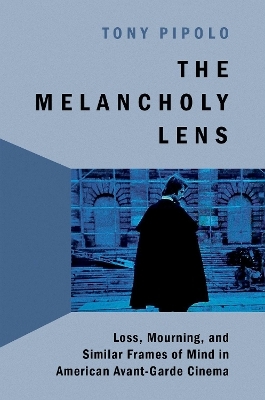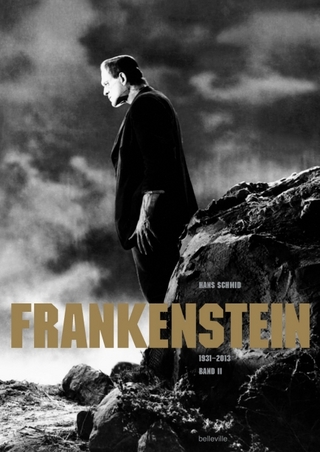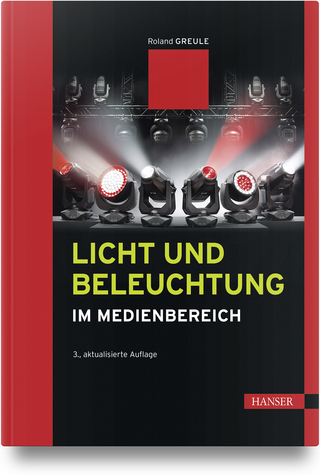
The Melancholy Lens
Loss and Mourning in American Avant-Garde Cinema
Seiten
2021
Oxford University Press Inc (Verlag)
978-0-19-755117-2 (ISBN)
Oxford University Press Inc (Verlag)
978-0-19-755117-2 (ISBN)
In The Melancholy Lens, author Tony Pipolo offers new insight into the psychological motivations of avant-garde filmmakers Maya Deren, Stan Brakhage, Gregory Markopoulos, Robert Beavers, Ken Jacobs, and Ernie Gehr, focusing on aspects of their lives that impacted their art.
The prevalence of loss and mourning, and of charged relationships with parents or parental figures has had a surprising influence on several American avant-garde filmmakers' work . To date, however, little attention has been given to these themes. In The Melancholy Lens, author Tony Pipolo offers a detailed look at the significant role of underlying biographical and psychological factors in specific works by leading avant-garde filmmakers. Covering a range of filmmakers including Maya Deren, Stan Brakhage, Gregory Markopoulos, Robert Beavers, Ken Jacobs, and Ernie Gehr, The Melancholy Lens takes a sensitive approach to understand the motivations of each filmmaker as related to a given work. Pipolo argues, for example, that the work of Deren and Brakhage lends itself to a more aggressive appreciation of psychoanalytic principles.
The Deren films studied-Meshes of the Afternoon, At Land, and Ritual in Transfigured Time-are read as varying responses to the death of her father, with whom she had a strained relationship. Tortured Dust-the final film Brakhage made about his first family-was, by his own account, a work of contention and desperation. The elusiveness of Gregory Markopoulos' The Mysteries cannot conceal its naked obsession with death any more than it can diminish the film's poignancy. Robert Beavers' Sotiros is an especially rich and vivid exposure of a vulnerable chapter in the filmmakers's life. In the final two chapters on Ken Jacobs and Ernie Gehr, Pipolo looks outward for artistic motivation to show how both filmmakers' fascination with the history of film and video manifests as a melancholic view of greater history in their work. In the afterword, the author considers later figures whose work is kindred to the theme of this book, among them Nathaniel Dorsky, Phil Solomon, David Gatten, and Lewis Klahr.
The prevalence of loss and mourning, and of charged relationships with parents or parental figures has had a surprising influence on several American avant-garde filmmakers' work . To date, however, little attention has been given to these themes. In The Melancholy Lens, author Tony Pipolo offers a detailed look at the significant role of underlying biographical and psychological factors in specific works by leading avant-garde filmmakers. Covering a range of filmmakers including Maya Deren, Stan Brakhage, Gregory Markopoulos, Robert Beavers, Ken Jacobs, and Ernie Gehr, The Melancholy Lens takes a sensitive approach to understand the motivations of each filmmaker as related to a given work. Pipolo argues, for example, that the work of Deren and Brakhage lends itself to a more aggressive appreciation of psychoanalytic principles.
The Deren films studied-Meshes of the Afternoon, At Land, and Ritual in Transfigured Time-are read as varying responses to the death of her father, with whom she had a strained relationship. Tortured Dust-the final film Brakhage made about his first family-was, by his own account, a work of contention and desperation. The elusiveness of Gregory Markopoulos' The Mysteries cannot conceal its naked obsession with death any more than it can diminish the film's poignancy. Robert Beavers' Sotiros is an especially rich and vivid exposure of a vulnerable chapter in the filmmakers's life. In the final two chapters on Ken Jacobs and Ernie Gehr, Pipolo looks outward for artistic motivation to show how both filmmakers' fascination with the history of film and video manifests as a melancholic view of greater history in their work. In the afterword, the author considers later figures whose work is kindred to the theme of this book, among them Nathaniel Dorsky, Phil Solomon, David Gatten, and Lewis Klahr.
Tony Pipolo is Professor Emeritus of Film and Literature at CUNY, New York. He is also a psychoanalyst in private practice and writes frequently on film for various journals and magazines.
Introduction
Chapter 1. Father Time: Maya Deren's Meshes of the Afternoon, At Land, and Ritual in Transfigured Time
Chapter 2. This Common Clay: Stan Brakhage and Tortured Dust
Chapter 3. A Dance with Death: Gregory Markopoulos and The Mysteries
Chapter 4. Eros Interrupted: Robert Beavers's The Ground and Sotiros
Chapter 5. The Tempering Frame: Ernie Gehr's Media Romance
Afterword
Notes
Index
| Erscheinungsdatum | 17.05.2021 |
|---|---|
| Zusatzinfo | 34 Film Stills |
| Verlagsort | New York |
| Sprache | englisch |
| Maße | 231 x 155 mm |
| Gewicht | 272 g |
| Themenwelt | Kunst / Musik / Theater ► Film / TV |
| Kunst / Musik / Theater ► Theater / Ballett | |
| ISBN-10 | 0-19-755117-3 / 0197551173 |
| ISBN-13 | 978-0-19-755117-2 / 9780197551172 |
| Zustand | Neuware |
| Informationen gemäß Produktsicherheitsverordnung (GPSR) | |
| Haben Sie eine Frage zum Produkt? |
Mehr entdecken
aus dem Bereich
aus dem Bereich
Filmtechnik, Bildgestaltung und emotionale Wirkung
Buch | Hardcover (2024)
Carl Hanser (Verlag)
CHF 62,95


